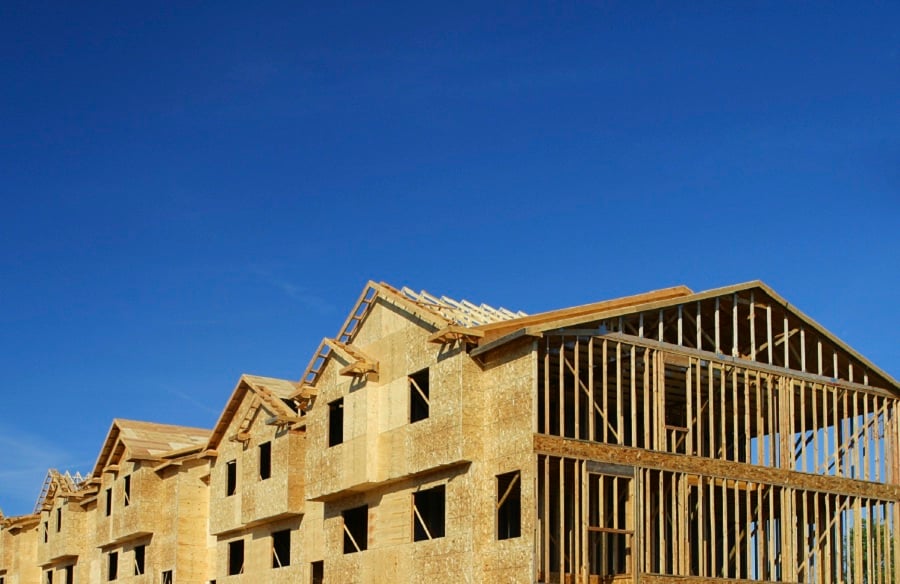There's plenty of evidence that it's not a great investment — and may even be a bad one in a recession.
For many Americans, a house is a place to lay your head, plant your petunias and evict your raccoons. For many people, it's their biggest investment, too.
But how good an investment is it? And when it comes to making a housing investment, is bigger necessarily better?
Many people hold to the belief that a house is a good investment. This is particularly true for high-income people who want to justify buying a big house. While there's nothing wrong with wanting a nice house, there's plenty of evidence that it's not a great investment — and may even be a bad one in a recession.
Let's start with home prices. The S&P/Case Shiller 20-City Composite Home Price Index peaked in July 2006 at 206.52 and has yet to fully recover. Its most recent reading was 182.75, or about 13% below its all-time high. The national median price of existing homes peaked in July 2007 at $230,400 and currently stands at $210,800, according to the National Association of Realtors.
Our first lesson here is that it takes a long time to recover from a bubble. This isn't unique to housing bubbles: The Dow Jones industrial average didn't beat its 1929 high until 1954. Nearly two-thirds of all surviving technology stock funds are still below their 2000 high.
But real estate bubbles are particularly painful since most people borrow to buy. A homeowner with a 20% down payment would have seen his or her entire principal wiped out in a 20% decline. And during the 2006 mania, the normal 20% down payment was a quaint relic of earlier days. (This is, incidentally, a hallmark of real estate bubbles. During the Florida land bubble of 1926, investors actually dispatched with closing on the property, instead trading purchase agreements secured by a nominal good-faith deposit. When the bubble broke, some startled orange farmers discovered they still owned their orange groves, now covered with half-built bungalows.)
Our second lesson is that over the very long term, housing provides modest price appreciation. Yale professor Robert Shiller, co-creator of the Case-Shiller indices, argued in a 2006 paper that houses essentially provide “negligible” real returns.
DISBELIEVING INVESTORS
You may have a hard time believing this. Shorpy.com, a site devoted to historical photographs, had a photo of house in Chevy Chase, Md., that had sold for $17,000 in 1919. According to Zillow.com, the house sold for $2.4 million in 2014.
That's a lot of money, right? Well, it's not bad. Over 95 years, it works out to a 5.35% average annual return. That's much better than inflation, but less than the return from the Dow.
And even that 5.35% is a bit misleading. Houses require continual upkeep, which costs money. We can assume a home built in 1919 had been lovingly coated in lead paint for half a century, and that the same lead paint was expensively removed at some point. We can also assume that lead pipes had been removed, too, as well as any asbestos that may have been used in the floors and furnace. Speaking of the furnace, a house built in 1919 is probably on its fifth one, at least, as well as its fifth roof. And let's not forget the annual cost of mortgage interest, property taxes and insurance.
Finally, there are other factors to consider when weighing a large home purchase. Like the stock market, the housing market is a fair-weather friend, rising in good times and falling in recessions. Unlike stocks, however, houses are much more difficult to sell in hard times — and that means you might not be able to move to a new area for a better job if your house is underwater. According to the National Bureau of Economic Research, housing busts reduce homeowners' mobility, on average, by 30%. In other words, if you buy a large house and lose your job in a recession, you have far less ability to move elsewhere and get another job.
Steve Janachowski, a financial planner in Tiburon, Calif., noted that he's also seeing clients who have too much house already. “They don't have a lot of liquid assets in retirement and have too much of their resources tied up in their house,” he said. Eventually, they will have to sell their house and look for a lower-cost place to live. “And they don't want to,” he said. “They're already living in their dream house.”
Naturally, there are many plus sides to home ownership: You get to deduct the interest on your mortgage, and when the housing market is rising, leveraging your purchase will amplify your gains. You can paint the living room any color you want without having to ask the landlord. And a paid-off mortgage is a wonderful thing in retirement. Nevertheless, unless you have a fair amount of good timing in your purchase, you can expect only modest price gains.
Many successful people like to own their own homes, and for many of them, a house is a not-so-subtle way to display their wealth. There's probably not much you can do to dissuade them. But if you are trying to justify a large house by saying it's a great investment, in many cases, that just isn't the case.







